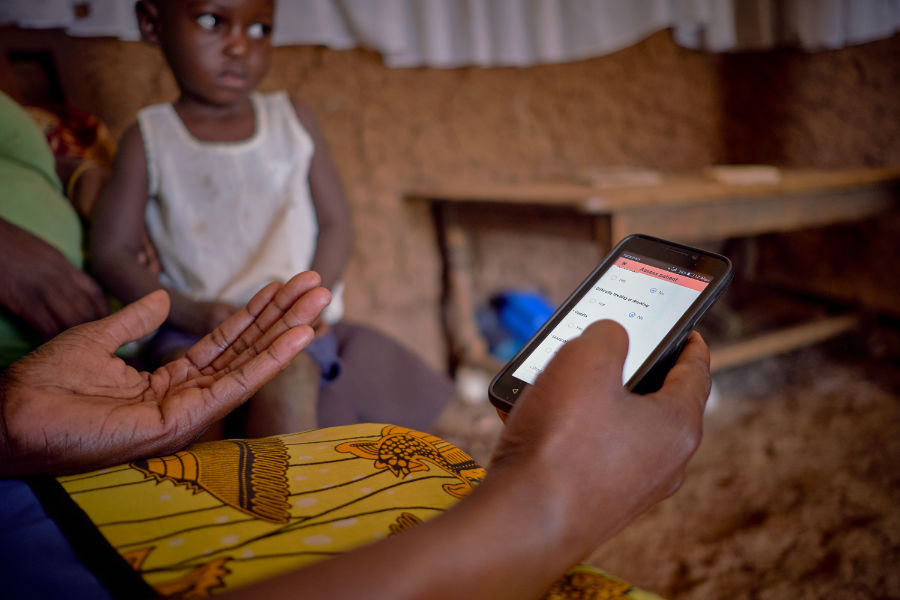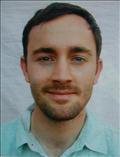
Medic Labs will address huge problems and propose radical solutions using disruptive technology.
New datasets and precision approaches to clinical practice are transforming healthcare for the wealthy, and it is time for the powerful insights underlying this shift to strengthen health systems serving the poorest and hardest-to-reach communities.
Isaac Holeman
A unique non-profit organisation, co-founded by a Gates Cambridge Scholar, which aims to advance good health for the hardest-to-reach communities has announced the creation of a new global health technology accelerator.
Medic Mobile's Medic Labs has $3 million in seed funding from The Rockefeller Foundation and will pursue 'moonshot ideas' – ideas which address huge problems, such as climate change, and propose to create a radical solution to the problem using a disruptive technology. Medic Mobile says it is following in the tradition of dedicated R&D arms of major technology companies, including Microsoft Research, Google X and Bell Labs and aims to drive better community health outcomes for all people, everywhere, through the intentional, equitable application of data science.
It cites the fact that half the world lacks access to essential services and that by 2030 the world will face a shortage of 18 million health workers.
"New datasets and precision approaches to clinical practice are transforming healthcare for the wealthy, and it is time for the powerful insights underlying this shift to strengthen health systems serving the poorest and hardest-to-reach communities," said Dr Isaac Holeman [2013], Co-Founder of Medic Mobile and Head of Medic Labs who did his PhD in Management Studies at the University of Cambridge as a Gates Cambridge Scholar. "Medic Labs will play a crucial role in realising the potential of Precision Public Health, creating human-centred solutions that help community health systems to reach more people in need and improve health outcomes for everyone."
"Moonshot ideas have generated innovations that have transformed the lives of many," said Naveen A. Rao, MD, Senior Vice President, Health, The Rockefeller Foundation. "The Rockefeller Foundation is proud to support Medic Labs as they apply this approach to generating new ideas that have the potential to advance precision in public health and improve health for all. I welcome others to join us in supporting such bold approaches to solving the world's greatest public health challenges."
For the past decade, Medic Mobile has worked with Ministries of Health and other partners to support countries in realising the potential of community health workers to improve the health of their populations. Through the Community Health Toolkit (CHT) open-source project, Medic Mobile has built digital health applications that over 27,000 health workers have been trained and equipped to use. The organisation's human-centered design practice and other insights and expertise gained through this work will inform Medic Labs' research agenda and approach to moving projects from the lab to the field.
Medic Labs will be a separate research unit housed within Medic Mobile. This separation between routine operations and R&D will provide Medic Labs' growing team with room to experiment, while having the ability to roll out promising developments with Medic Mobile's health system partners across 14 countries to make an impact at scale. In the coming months Medic Labs expects to form new partnerships with health systems, co-funders and other innovative organisations to further expand on its ambitious R&D agenda. Initially, Medic Labs will focus on three areas:
– Human-centred design: Re-imagining how data is used to improve software interfaces that support health workers in their daily activities, making service provision more intuitive.
– Data integration: Sourcing, analysing and deploying new and innovative datasets on health and the social determinants of health, including transportation and weather, into the CHT ecosystem to gain greater understanding of factors that affect healthcare.
– Data interoperability and third-party solution integration: Combining third-party applications with the CHT to increase access to data and improve community health outcomes.
"The Community Health Toolkit has enabled community health workers to reach more people with life-saving interventions," said Beatrice Wasunna, a Senior Researcher at Medic Labs. "We're excited to work with The Rockefeller Foundation to ensure that Medic Mobile's innovations do not stay in the lab, but reach those who stand to benefit the most as quickly as possible."
More information: https://youtu.be/pO3yaa6Kzww?t=2440. Picture credit: Medic Mobile.

Isaac Holeman
- Alumni
- United States
- 2013 PhD Management Studies
- King's College
Isaac Holeman is a designer-researcher striving for global health equity. As a social scientist and co-founder of the social enterprise Medic Mobile, his work is about seeing complex health systems from the perspective of the poor and marginalized and responding pragmatically. Medic Mobile received a Skoll award in 2014, and Isaac has been featured twice in Forbes Magazine as one of the top 30 social entrepreneurs under the age of 30. He is an active speaker and consultant, and his writing has been featured in outlets such as National Geographic, the Oregonian and the Harvard Global Health Review. He continues to practice design at Medic Mobile, while pursuing research projects as a fellow of the University of Edinburgh’s Global Health Academy and as a Gates Cambridge Scholar in innovation, strategy and organization.












